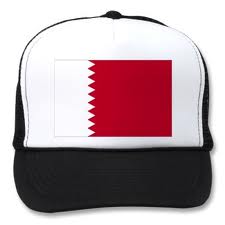I was trying to relax and watch a movie with friends Sunday night after hearing about Osama Bin Laden’s death. It was big news, but after hearing the details and the president’s (fairly dreadful) speech, I realized I was about to be inundated with days of superfluous coverage and needed a break already. However, having deluded myself into thinking I’d add to my thesis during the movie, I kept my laptop with me and found it hard to stay off of Facebook and Twitter. The information and debate I found on Twitter compelled me, even though I wasn’t particularly interested in the overarching topic. The reactions on facebook? Not so much. Why the contrast between the media? Here are a few guesses:
1. Those I follow on Twitter are just more interesting/unpredictable than my facebook friends
I’ll cop to this being the obvious explanation for the discrepancy. Because of this class and other reasons, I follow experts on the Middle East, who in turn are able to curate the most interesting responses from others in the know (Andy Carvin and Mona Eltahawy are the the best examples of this, and Mona being down at Ground Zero particularly.
I learned more about some non-Middle East-related figures whom I follow on Twitter. Comedian/author/general genius John Hodgman, who has built a career on a complex and detached comic persona, on Sunday night tweeted various unqualified patriotic and weighty statements (“I’m glad his fate is complete”), but alternated them with retweets of more tempered reactions (“No Joy. Just Relief”). Seeing someone like Hodgman’s tweets helped to convince me of something I’d been skeptical of before, that New Yorkers of all stripes seem have a viscerally different reaction to the figure of Bin Laden than others do.
Most importantly, there is just a different etiquette for who needs to be followed on Twitter than who I need to be friends with on Facebook. It would be rude of me not to be friends with people I genuinely like on Facebook, even if they never have anything interesting or intelligent to say on the internet. On Twitter, there is no such consideration of outside friendship, which after all is not the point. Which leads me to…
2. The people who tend to be on Twitter (at the moment) are different
Information and opinion, in abbreviated forms, seem to still be why people log on to twitter. People go to Facebook, it seems, for posturing they’d prefer not to do in person. Twitter’s popularity will continue to grow, but it seems to hook the people who genuinely want to learn about something from someone they otherwise would never have a chance to hear from. That doesn’t mean people don’t posture or communicate in ways they probably should do in person on Twitter, but the system of lists and blocking make it easier to ensure you see an interesting, informative exchange of information on Twitter.
3. The formats make for different kinds of debate
Siobhan’s fear of putting up a quote status which people would “like” the killing part of the news rather than the phrase Obama used shows pretty well the silliness of Facebook, particularly in a post-“like” era. Facebook comments, like various comment cultures which exist on some of my favorite sites, seem to often be about attack and one upsmanship for everyone to see, particularly when the most vocally and famously progressive or conservative Dickinsonians make some kind of a provocative remark. Long debates are less easily visible on twitter, and so they encourage less quick research and sniping back and more cleverness and ingenuity (Again, there are many exceptions). This also has to do with the character limit: If you need to sermonize, you’ll have to do it in person or over an embarassingly long string of tweets no one will keep up with.
As word of an impromptu and well attended, lets call it a gathering, at the center of campus got to me, I chose to express my conclusion to everyone’s reaction (that this event was playing out like a giant Rorschach test for Americans, revealing all of their own projections and desires and maybe not the objective reality of the situation). I wouldn’t have put that as a status on Facebook, for fear of having to explain, being taken out of context, having people hastily like it without thinking about it, and it getting lost in a sea of a million more confrontational statuses. That’s Facebook in 2011 for you.





